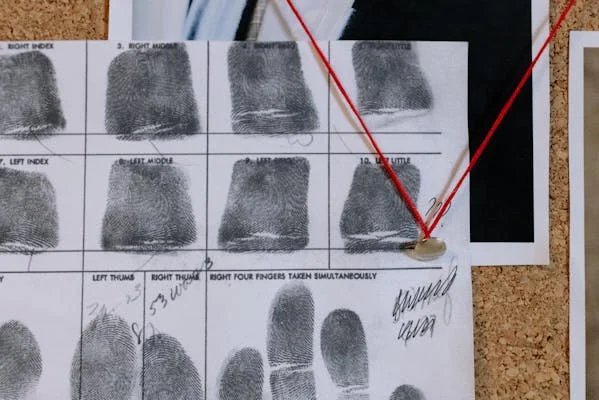A Chance Encounter That Changed a Life
It was a quiet afternoon in the public library when Emma stumbled across a flyer advertising a degree program she had never considered: a Criminal Justice Technology Degree. Intrigued, she glanced around the room filled with textbooks and computers, imagining the connection between law enforcement and technology. That moment set her on a journey to redefine her career and revolutionize how justice is served in an ever-evolving digital age.
What Is a Criminal Justice Technology Degree?
Bridging Law and Technology
A Criminal Justice Technology Degree combines studying criminal justice systems with cutting-edge technological skills. It equips students with knowledge in areas such as:
- Cybersecurity in law enforcement
- Forensic data analysis
- Evidence management systems
- Artificial intelligence applications in crime prevention
Why Choose This Degree?
- There is a High Demand for Tech-Savvy Professionals. The rise in cybercrime and advanced investigative tools has created a need for experts who can navigate both fields.
- Diverse Career Opportunities: Graduates can pursue roles in law enforcement agencies, forensic labs, correctional facilities, and private security firms.
- Impactful Work: By merging technology and justice, graduates contribute to safer communities through more innovative, data-driven solutions.
Core Curriculum and Skills
What You’ll Learn
Students in this program are immersed in a curriculum that blends:
- Criminal Law Fundamentals: Understanding the legal framework of justice.
- Digital Forensics: Retrieving and analyzing digital evidence for investigations.
- Crime Mapping and Analytics: Using GIS and predictive analytics to solve crimes.
- Technology Ethics: Addressing privacy and ethical concerns in technological applications.
Hands-On Training
Practical training is a cornerstone of this degree, with opportunities for internships at law enforcement agencies, labs, and tech companies. Students get hands-on experience with tools like forensic software, surveillance systems, and crime analysis programs.
Career Opportunities
Where Can This Degree Take You?
Graduates of a Criminal Justice Technology Degree program are prepared for a wide range of roles, including:
- Digital Forensic Analyst: Analyzing digital evidence to support investigations.
- Cybercrime Investigator: Tackling online fraud, identity theft, and hacking cases.
- Crime Data Analyst: Identifying crime trends and supporting proactive policing.
- Technical Consultant for Law Enforcement: Advising on and implementing advanced technologies.
Salary and Job Outlook
According to the Bureau of Labor Statistics, careers in technology-related criminal justice fields are expected to grow by 5% through 2031. Entry-level positions typically start at $50,000 annually, with opportunities for growth as experience and expertise increase.
The Role of Technology in Modern Justice
Advancing Crime Prevention
Technology has revolutionized how crimes are prevented and solved. For example:
- Predictive analytics can identify high-risk areas before crimes occur.
- Surveillance systems using AI can monitor activities in real-time.
- Mobile apps enable citizens to report suspicious activities instantly.
Ethical Challenges
While technology offers incredible advantages, it also raises critical questions about privacy, bias in algorithms, and the misuse of surveillance tools. A Criminal Justice Technology Degree ensures graduates can responsibly navigate these challenges.
How to Get Started
Choosing the Right Program
When selecting a degree program, consider:
- Accreditation: Ensure the program meets industry standards.
- Specializations: Look for options like cybersecurity or forensic technology.
- Internship Opportunities: Hands-on experience is invaluable for career readiness.
Preparing for Success
- Brush up on basic tech skills, such as coding and data analysis.
- Stay informed about the latest trends in criminal justice and technology.
- Network with professionals in the field through events and online platforms.
Conclusion
A Criminal Justice Technology Degree is more than a career choice; it’s a pathway to shaping the future of justice. With technology at the forefront of solving complex crimes, there’s never been a better time to pursue this exciting field. Are you ready to be part of this transformative journey?
FAQs: Criminal Justice Technology Degree
What is a Criminal Justice Technology Degree?
A Criminal Justice Technology Degree is a specialized program that combines the study of law enforcement, legal systems, and advanced technologies like digital forensics, cybersecurity, and crime analytics.
What careers can I pursue with this degree?
Graduates can work as digital forensic analysts, cybercrime investigators, crime data analysts, correctional tech specialists, or technical consultants for law enforcement agencies.
How long does it take to complete the degree?
Most Criminal Justice Technology Degree programs take two to four years, depending on whether you enroll in an associate, bachelor’s, or accelerated degree program.
What skills will I gain from this degree?
You’ll develop skills in:
Digital forensics and data analysis
Crime mapping and predictive analytics
Cybersecurity measures in criminal investigations
Ethical and legal considerations in technology
Is this degree in demand?
Yes, with the rise of cybercrime and digital evidence handling, professionals with expertise in criminal justice and technology are in high demand.





